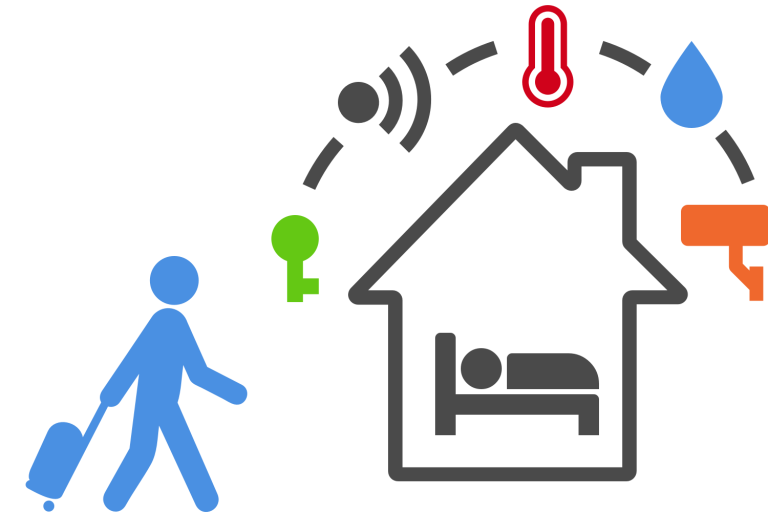Smart home devices are becoming pervasive in both private and public accommodation. Smart technologies available in private homes are convenient and increase home owner’s sense of security; but, when installed in spaces shared with guests, tensions emerge.
SPICE postdoc, Shrirang Mare is the principal author of a study seeking to understand the security and privacy implications of smart
devices in the previously unexplored sphere of short-term rentals. The study is based on a recent survey conducted among 554 Airbnb guests and 82 hosts.
In this context, smart devices enable hosts to remotely manage their Airbnb and also offer convenience to guests. The study concludes that the views of guests and hosts on data collection are aligned, but where differences occur, serious privacy violations can occur. In addition to being the first in-depth exploration of smart devices in short-term rental homes, this study also contributes to knowledge about how Airbnb hosts and guests feel about smart devices from a privacy and security perspective, and provides concrete design recommendations to address key privacy and security issues that create tension between them.
Both guests and hosts answered questions about the devices they have adopted (hosts) or observed (guests) in rentals, the types of data collected (and retained) through these devices, and the kinds of incidents that might be observed through smart devices. Both groups were asked about their motivation for installing or using a variety of smart devices, perceptions of risk for incidents that might occur, the likelihood of those occurrences and the level of upset should the incident occur in Airbnbs.
Guests reported strong preferences for four types smart devices (smart TVs, door locks, security systems and gaming consoles); and three devices they did not want, including cameras, motion sensors, and voice assistants. Influencing these preferences were device location and context, (size of the traveling party, type of accommodation –entire home vs. private or shared room — and duration of stay). The primary needs that smart devices meet focus on guest entertainment, convenience, sense of luxury or comfort, and safety and security. Their concerns include being spied upon by the host, discrimination by the host, technically unsophisticated hosts exposing them to unacceptable risks, and untrustworthy device manufacturers.
Among hosts, there was a large variance in the number of smart devices most commonly smart TVs gaming consoles, voice assistants, and smart door locks. The concerns motivating smart device use included property damage, theft or other liabilities and violation of house rules.
In comparing the views of guests and hosts, tension was found between them on data collection and sharing. Guests were more comfortable sharing house-related data, like thermostat settings, and less comfortable sharing personal data, like visitors and monitoring their TV watching or Internet searches. Guest and host preference differed the most for smart devices that impact privacy – cameras, motion sensors and voice assistants. Views also diverged on the appropriate location in the home for these devices. Locating devices in the living room was the most problematic, which guests were likely to consider private while hosts reported many devices in that location,
Design recommendations are suggested with consideration for least privilege sensing, smart home dashboards, access control and reset, trusted third-party Wi-Fi, responsible device disclosure, and smart home profiles.
“Smart Devices in Airbnbs: Considering Privacy and Security for both Guests and Hosts,”is published in the 2020 Proceedings on Privacy Enhancing Technologies (PETS 2020).


